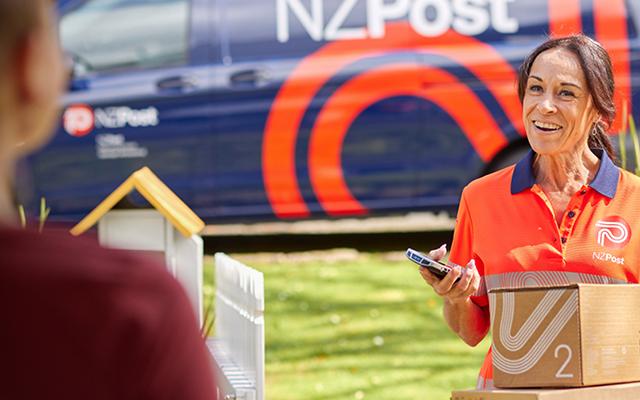A large part of your marketing activities in the upcoming event sales season will be online. After all, you are an online business looking to attract a bigger share of online shoppers. We asked our media partner PHD Media to share their expertise on the key things to think about in developing effective online marketing programmes.
How has online marketing evolved in recent years?
Online marketing has matured in recent years and COVID has further accelerated this. The number of people consuming media online has grown exponentially as more of us use our devices for entertainment, news and information, to connect with our friends and to shop.
Advertising has always been most effective when it reaches out to where, when and how audiences like to consume information. This is a big challenge in a dynamic digital world with ever-increasing audience needs and preferences, new online platforms and rapidly-evolving screen use patterns. COVID lockdowns have further changed audience behaviours, especially with on-demand viewing and how we use social channels to connect, entertain and buy. These changes don’t mean that people are no longer watching or listening to ‘old’ media. For most age groups, they are probably doing both. An omnichannel approach still works best, layering messages across different mediums to reach, remind, reinforce and engage audiences.
Another positive development has been the way the promotion and sales experience are bought closer together. Businesses have quickly realised the importance of creating a seamless end-to-end experience from the online advert, to store, through check-out, delivery and beyond. And while this puts more pressure on the quality of the website experience, it also provides an enhanced opportunity to make marketing success more immediate and tangible.
Another advancement has been a move away from measuring online marketing’s performance with short-term metrics like number of clicks. For many, digital marketing means bigger reach at lower cost, but this quantity focus ignores quality. Thankfully, we’re seeing businesses put more focus on tracking the longer-term effectiveness of their marketing spend on growth and brand.
What’s your advice to retailers about creating effective digital marketing programmes to grow their business?
It’s important to take a long-term approach to all your marketing plans, with a focus on growing your brand and driving long-term growth.
Aiming for short-term ROI may be appropriate for specific sales events or promotions but this often means being very targeted with your audiences. Thinking small has the potential to limit growth, profitability and brand strength. Build your marketing programme for long-term growth, and the opportunities to drive this, rather than getting caught up in a series of short-term promotions and discounts. It’s been proven time and time again that consumers will pay a higher price, buy more often and recommend brands they like. Just as important, building long-term awareness and likeability of your brand will allow your short-term campaigns to deliver more.
To grow recognition, don’t be tempted to go too different each time with your advertising. Stick to the colours and visual style that your brand is known for. Build a suite of distinctive brand assets and messages and be consistent with how you use them. This makes it easier for audiences to know it’s you. Repetition builds brand recall and association and that means customers are more likely to remember you when they need what you offer.
Short-term marketing promotions, like event days, have a definite place in your annual sales plan. Make sure you have clear goals and measures for each promotion and that your tactics support these outcomes. At the same time, ensure each campaign contributes to your longer-term brand and growth goals.
Online retailers also need a further ‘always on’ layer to their online marketing activity which not only allows them to be found but also to remain top of mind for potential customers. With the volume of online noise audiences are exposed to everyday it is important to help them remember your name when they need you.
Are there certain online channels that work better than others?
Almost any media channel can work for any category but some are better than others depending on what you want to communicate, the audience you want to reach and the outcomes you are trying to drive. It’s important to be clear in how you’re measuring success for your marketing strategies and using channels and tactics that deliver this. An online campaign to drive online sales will be very different to one designed to drive people to your physical store. Always be strategy and audience-led in your thinking, not tactic or channel-led.
Any final advice to help retailers make their online marketing efforts more effective?
Don’t be afraid to try new things that provide added engagement and create talkability amongst potential audiences. For example, COVID saw a willingness of audiences to use augmented reality (AR) to trial new products. This saw the growth of 3D experience advertising to engage audiences in discovery, interaction and sharing with their friends
The digital marketing world is changing fast, so find good marketing partners who understand it and know how to make it work for you. It’s almost impossible to see your business, or your marketing efforts, objectively from the inside so an expert outside view is always worth the investment.
PHD MEDIA 5 SALES EVENT QUICK TIPS for getting your promotions noticed this upcoming Sales Event season
-
Prime your audiences: People are more likely to notice things that they know and like. Consider what you can do to get a head start on your competitors by warming up your potential audience before the big sales events.
- Go for impact: People are more likely to notice things that stick out. Consider rich digital media that offers sound and movement and larger more dominant formats.
- Keep it simple: People are much more likely to do things that are easy, so make your messaging and sales journey as simple. Don’t overwhelm or confuse potential customers with lots of offers and make the connection to your sales channels seamless.
- Be memorable: People are much more likely to remember things are both unique and familiar. Ensure your advertising is different to competitor. At the same time, clearly displays your distinctive brand assets so they know that it’s you.
- Consider context: People are more likely to notice something when it’s relevant to them. Think about the time and place where your message is most relevant to your audience. Plan your creative and media to be there.






